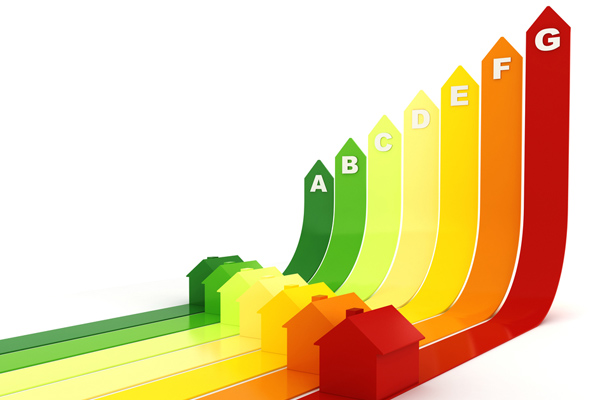What Are 3 Ways That You Can Tell If Your Heater Is Energy Efficient?

On extremely cold days, the heating system in your home is tasked with the challenge of keeping the living environment warm and comfortable. By keeping your home warm, your heater protects every member of your household from cold-related illnesses. It also ensures that temperature-related plumbing issues such as frozen pipes don’t occur. A good heating system will be durable, quiet when operating, and efficient. An energy-efficient heating system will keep your energy bills low while effectively distributing heat. Your maintenance costs should be kept at a minimum. Following are three ways to determine whether or not you have an energy efficient heater. We also discuss some tips for improving the efficiency of this important home equipment.
What Is An Energy-Efficient Heater?
Table of Contents
When buying a heating system, the first thing to learn is the overall square footage of your house. This will ensure that the heater you choose has the right capacity. The United States Department of Energy (DOE) says that older systems are only about 56 to 70 percent efficient. However, modern heating equipment can be as much as 98.5 percent efficient. It’s important to note that depending upon the amount of HVAC maintenance it receives, a heating system can experience decreases in its overall efficiency – up to five percent annually.
Following are three factors that determine whether a home heating system is energy efficient.
The Age of the Heater
The average residential heater has a lifespan that ranges between about 15 and 20 years. When heaters are diligently maintained, they can last quite a long time. However, their efficiency will invariably go down over the years due to ongoing wear. The age of your current heater can give you some insight into just how efficient it is given that an older system will be less efficient than a brand new one.
If you’re unable to determine whether your heater is energy-efficient based upon its age alone, you can always get help from a licensed HVAC contractor.
Your Home Energy Bills

From season to season, your heating requirements and your home energy bills can change. Notwithstanding this fact, the total energy costs for your household should remain fairly the same from year to year, unless there were significant rises in the costs of energy per unit. If every other factor remains constant, make a comparison of your energy bills from the same period last year to see if there have been any dramatic surges.
If your energy bills have increased dramatically, this may be a sign that your home heating system has become less efficient. To adequately heat a given space, a low-efficiency heater will need to work much longer and hard. As a result, it will have to use more energy, and your home energy bills will rise.
Your Heater’s AFUE Rating
The Annual Fuel Utilization Efficiency (AFUE) ratio of a heater is its assigned rating that designates its level of efficiency. You can divide the amount of heat output by the amount of energy input to determine your heater’s AFUE rating. For example, an AFUE rating of 95 percent indicates that the heater is capable of converting a full 95 percent of the fuel used into heat, and the other five percent dissipates through the vent.
More often than not, HVAC manufacturers put the AFUE ratings for heaters on their labels. As such, you can easy learn the efficiency of a heating system by simply checking its label. If you aren’t able to find this label, use the serial number or the model number of the heater to search for the AFUE rating on the manufacturer’s website. The AFUE rating will tell you whether or not your heater is an efficient one.
Tips for Improving the Efficiency of Your Home Heating System
On colder days, having a low-efficiency heater can jeopardize the comfort of everyone, raise your energy bills, and result in more frequent breakdowns. Depending upon your chosen fuel type, a low-efficiency heater can also lead to a larger carbon footprint. Bearing this in mind, you can improve the efficiency of your home heating system by using the tips that follow.
- Regularly Change or Clean the HVAC Air Filters: Your furnace will work overtime when it has to pull air through an HVAC filter that’s dirty and clogged, and thus, you should make sure to regularly clean or change your filters as necessary.
- Make Sure Your Home Is Well-Insulated: When your house is well-insulated, it will be able to retain more heat and your heating system will have a lower burden.
- Schedule Yearly Heater Inspections: Routine heater maintenance can improve the efficiency of your home heating system. Understanding this, make sure to schedule regular inspections with a qualified HVAC company. This will make sure that issues are resolved and the overall efficiency of your heater will improve.
- Install a Programmable Thermostat: Programmable thermostats self-adjust according to the heating needs of the home. With these, heaters only run as they’re needed and even then, only the amount of fuel necessary for meeting resident heating needs is consumed.
Reasons to Replace an Old, Outdated Heater
There will invariably come a time when routine maintenance won’t help much in terms of improving the efficiency of your heater. When this time does arrive, consider replacing your heater to experience the following:
- Improved Indoor Comfort: New heaters are high in efficiency and they’re far more likely to provide your home with adequate heat. On cold days, you need a reliable and efficient heater for assured comfort. This is something that an outdated heater may not be able to supply.
- Sidestep Regular Repair Issues: Older heaters can break down on a regular basis as the result of ongoing wear. By having your heater replaced, you’ll save on HVAC repairs and can avoid recurring breakdowns.
- Limit Your Heating Costs: High-efficiency often means paying less for energy, which is something that’s virtually guaranteed with a new heater.
Final Word
You can find out whether your current heater is an efficient one by verifying its age and AFUE rating. You can also review your home energy bills. If you have an inefficient heating system, it should be inspected and maintained by a licensed HVAC technician. Doing so will improve its efficiency. At times, it may be necessary to replace heaters that are incredibly old and outdated.
Call Hart Home Comfort For Your Home Heating Requirements
 When you need superior HVAC services in the area, do not hesitate to call Hart Home Comfort. We have the best professionally certified technicians who can conduct high-quality heating and cooling services, including maintenance, repairs, replacements, and installations. All our friendly techs are equipped with the correct tools, extensive knowledge, and years of experience to service any HVAC system accurately.
When you need superior HVAC services in the area, do not hesitate to call Hart Home Comfort. We have the best professionally certified technicians who can conduct high-quality heating and cooling services, including maintenance, repairs, replacements, and installations. All our friendly techs are equipped with the correct tools, extensive knowledge, and years of experience to service any HVAC system accurately.
Our company has the most competitive and affordable HVAC service costs in the area. When you need to replace your HVAC system, we can recommend the best and most budget-friendly unit for your home. Schedule an appointment with Hart Home Comfort today for a free, in-home estimate.
For any questions about what Hart Home Comfort can do for you, give us a call today. Click here to contact us now or call us at (631) 667-3200 to find out more!
